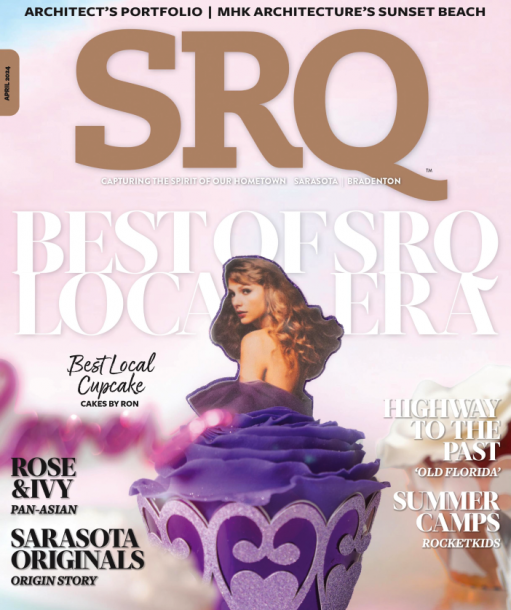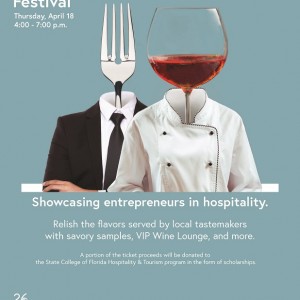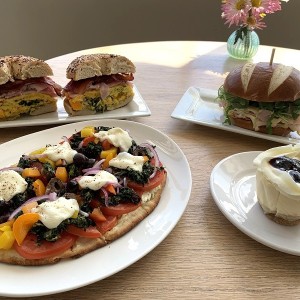Italy, the boot that sticks flirtatiously into the Mediterranean Sea, is the birthplace of some of the most universally embraced cuisines the world over. The image of a pizza transcends language, much like the universal symbol for “fragile” or the body language for “Help me, I’m drowning.” Pasta is a metaphor for the human experience itself, an infinite number of shapes and sizes, none of them wrong. And then there are the cured meats, so varied that one could eat a different combination of them on a sandwich every day and never eat the same one twice. But it’s the Italian mystique of the family kitchen that brands a restaurant as truly Italian. For an Italian restaurant to reach the upper echelons of legitimacy, it must incorporate a generations-old recipe from some quaint village unmarked on a map, or it must make use of “nonna” or “mama” as a prefix for some of its menu items—Nonna’s Stracciatella or Mama’s Bolognese, for example. The most important feature, however, is that a diner feel like a part of the family, as though they have been transported to the rustic kitchen of a rural Italian home and are welcomed into the inner circle of a tradition. SRQ embarks on a giro d’italia amongst three local Italian restaurants that check all of the boxes, passing the unwritten test of authenticity with flying tricolores.
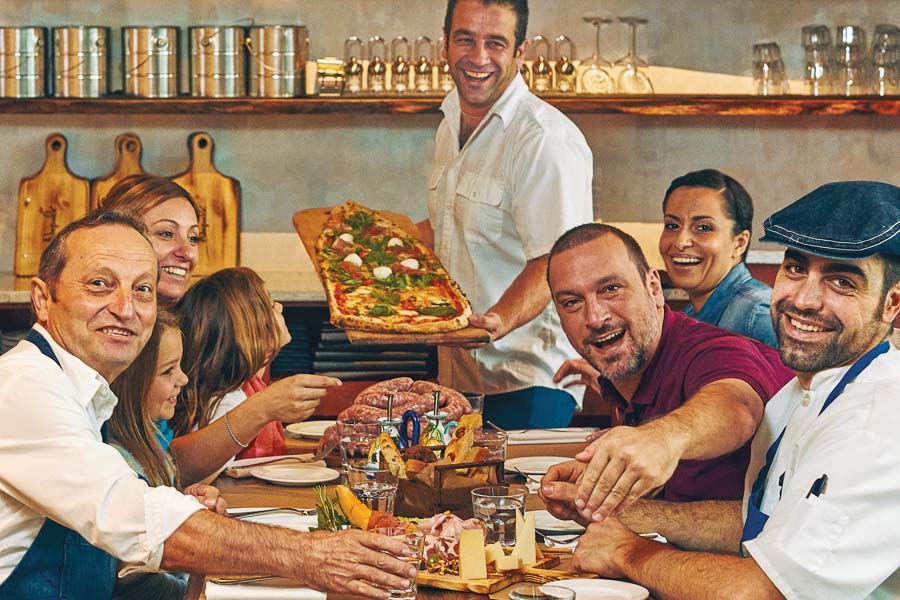
Napule
A Modern Trattoria With Classic Sensibilities
Guiseppe Del Sole, chef of Napule, goes by “Peppe,” and he encourages everyone to call him that. His brother-in-arms and business partner is Alessandro di Ferdinando, friends since they were 13 years old. Alessandro, with his sing-songy, raspy voice, is an enthusiastic and gracious host that often mans the bar, slinging drinks to help guests let down their hair and loosen their ties. There’s a glint of familiarity in their eyes when they speak to guests in their new restaurant, as though they want to expand the size of their family by the force of their friendliness. Maybe that warmth comes from growing up in a tightly knit community in their native Ischia, a small volcanic island that sits charmed and remote in the Tyrrhenian Sea. For Peppe, it may be the result of being the youngest of eight (yes, eight) siblings, six of them girls. Either way, they feel most comfortable in a bustling crowd serving up genuine Neapolitan dishes for a restaurant filled to capacity, and when food is so lovingly infused with familial and cultural heritage, the uninitiated may be hard-pressed to find an empty seat.
Naples, Italy, the culinary pot from which Ischia dips its ladle, is a region that has been continuously cross-pollinated by a variety of cultures throughout history, from the ancient Greeks to the Spanish and French, culminating in a cuisine that gave birth to the modern-day pizza (to which the world is indebted). Peppe—whose well-equipped, exposed kitchen boasts a wood-burning, gilded-tile pizza oven—has been steeped in the culinary crafts since he was nine years old, when he first stepped into a kitchen to help his uncle in the family’s café. It was here that he learned the art of pasta-making, the magic of crafting the finest sauces and the nuanced artistry of baking pane cafone, a traditional Neapolitan bread with a smoky, crispy crust and a fluffy interior. When Peppe met his wife Giovanna in Abruzzo, a region East of Rome, he learned to make sausages from his father-in-law, Donato, whose recipe contains a twist on traditional seasonings and includes orange zest and whiskey. They’re dry-aged in-house, or, more specifically, in a walk-in refrigerator at the back of Napule’s gleaming build-out. The menu includes a bevy of items featuring the sausage, including the grigliata mixta di carne, a meat-lover’s hot skillet of perfectly seared New York Strip, grilled lamb chop with a hint of rosemary and the aforementioned homemade sausage, served with a side of hardy potatoes, arugula, fennel and nutty rapini. Or order the sausage as a crumbled topping on a pizza, which Napule bakes al metro (by the meter, though not literally), which allows them to make as many as five or six different pizzas as one continuous length in the shape of a rectangle, a clever and quirky style that encourages a buffet-style, communal experience for large parties.
But Peppe and Alessandro brought with them from Italy more than recipes and family history, sourcing the handmade dining tables, dinnerware, uniforms, floor-tile and other design elements from their long-time contacts back home. “We wanted everything to be authentic, not just the food,” says Peppe. The final product is a modern, chic trattoria and salumeria, an eatery where the conversational vibe invites diners to sink into their chairs and order that extra glass of chianti, maybe even stay for dessert. And when Peppe and Alessandro roam the restaurant during peak hours and ask, “How is everything,” guests may get the impression that the pair is asking after their wellbeing as much as they’re asking about the quality of the food. Napule, much like the tiny island of Ischia, is an oasis of culture and camaraderie sitting charmed and remote on South Tamiami Trail, providing a bustling, dynamic dining experience that will make patrons feel like part of la famiglia.
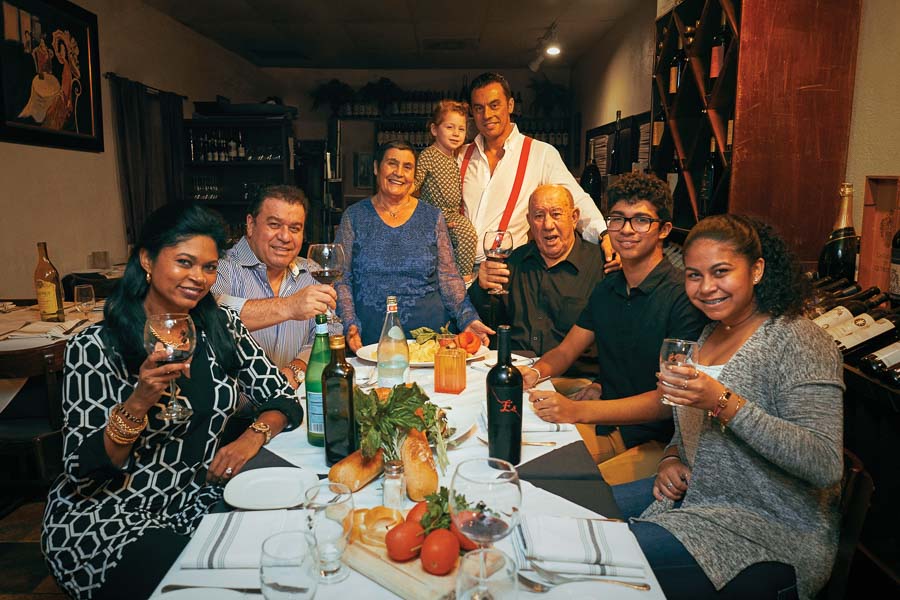
Café Amici
Friendship Through Food
Achille Nigri and his younger brother Massimo are an unlikely pair, separated by more than just a nine-year age difference. Achille, mastermind of Café Amici’s impeccable menu, has the disposition of a family man prone to spontaneous hugs, the kind of person that piles more food on a plate when a diner claims to have had enough. Massimo is tall and thin with the demeanor of a psychiatrist, a man that listens intently and quietly before responding with deliberate coolness. Together, they form a dynamic duo hailing from the Puglia region of Italy, the sun-soaked Southern heel of Italy’s boot, where they grew up eating their mother’s and grandmother’s classically prepared dishes.
Achille received a semi-formal education in culinary arts, although one gets the impression that it was superfluous since he grew up lending a hand in the family kitchen. He would go on to take his passion and talent across an ocean to a resort in Bermuda, where he worked his way up to be the youngest executive chef the resort ever employed. “It’s important for someone to leave home, even if you go back,” he says, “because you learn a lot about yourself and the world.” After watching countless coworkers attempt to make it in the States only to return to Bermuda with their tail between their legs, Achille decided to give it go. He came to Florida with a grand total of $400 and a seemingly irrational faith that he could succeed. Starting as a manager at a nondescript chain restaurant, he eventually saved up enough money to open his own eatery, a comfy place where he could offer the food that is so much a part of his spiritual constitution. Through his grit and feel-good menu selections, he came to own Café Amici outright, a Main Street mainstay since 1999.
The root of Amici’s inspiration is the Puglia region itself, where local cuisine is primarily comprised of local, seasonal ingredients grown on its sun-kissed earth and typically cooked without the use of butter. Honoring this tradition, Achille tries to source most of his produce from Jessica’s Organic Farmstand, often browsing for ingredients based on what looks most appetizing and vibrant that day. This village craftsman’s creativity is also expressed when loyal diners order off-menu altogether and ask Achille to wing it, which can result in dishes like the spinach tagliolini with vodka sauce, a rich tangle of green ribbon pasta coated lightly in a creamy, savory sauce and garnished with rosemary. Massimo handles the wine selection, travelling frequently back home to track down small vineyards to stock an ample wine list, many of which are available only at Amici.
Once a year, the Nigri brothers’ mamma comes for a visit and, rather than sit idly on the beach, sets up a station in the restaurant to start making pasta like she does back home in Martina. She has her own set of pasta-making implements stowed away in Amici’s kitchen, where they await the sage hands of a family tradition. Achille’s 15-year-old daughter might be next in a long line of kitchen whizzes, making pasta herself since she was seven years old and recently crafting a pizza from scratch for her mother and father’s anniversary. For this famiglia, the multi-generational affinity for stuffing the bellies of others may stretch backward and forward in time forever, and the hungry will forever be obliged.
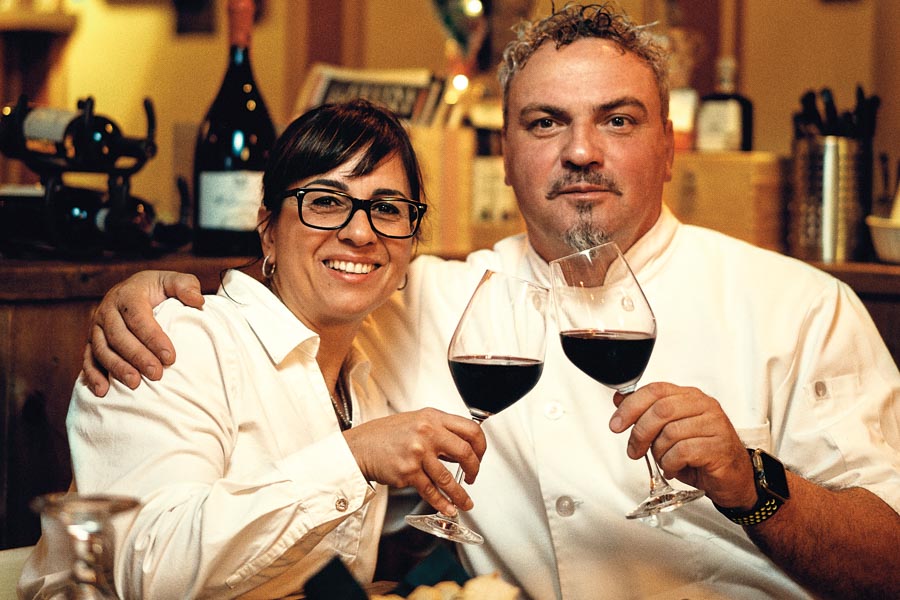
La Scarpetta
From Romance to Restaurant
La Scarpetta is the happy ending of a love story that started in Parma, Italy, where Rosaria Tataranni and Emilio Ferrara joined hands and gazed into the future together. In their future-dream was the warm sand and island lifestyle of Las Terrenas, Dominican Republic, the first stop on their wanderlust vision-quest in which they opened version 1.0 of La Scarpetta. Rosaria and Emilio succeeded for nearly a decade, thanks in part to the sizable European immigrant community eager for some gastro nostalgia, although Emilio’s deft wizardry in the kitchen may have had something to do with it too.
Among the community of immigrants was a fellow countryman who happened to own a restaurant in an unsung city in the United States called Sarasota, and when he decided to close shop he encouraged Rosario and Emilio to visit and scope out the restaurant scene. Serendipitously, they had already begun to itch again for new experiences in new locales and explored the possibility of setting up a Scarpetta in Miami. “But Miami was too big and crazy,” says Rosaria, “and when we came to Sarasota, we fell in love with the city.” They packed up their belongings and sold their restaurant nearly as-is, including all décor except for the front end of a turquoise Vespa and a vintage Solari flip clock they scored from a defunct train station in Parma.
Version 2.0 of La Scarpetta, open for two years, features a cozy dining area accented with dark wood and a vast array of knick-knacks from Rosario and Emilio’s travels together. The wine selection is stacked neatly and humbly on racks in the middle of the restaurant, which provides diners with the intimacy of a living room and blurs the line between a casual Italian café and a home kitchen. A patron lulled into comfort by Scarpetta’s congeniality could easily make the mistake of wandering into the restaurant’s kitchen to peek over Emilio’s shoulder, maybe even lend a hand.
Emilio may even welcome diners into the food prep area if it weren’t for those pesky food safety laws. After all, it’s how he became inspired to cook as a child. He would often help his grandmother sort out the ingredients for her food preparation, partly because he was interested in the process and partly because she would often confuse sugar for salt. This lead to some interesting meals, some of which actually lead to successes like sugar-glazed meats. But it’s Emilio’s mother that passed down the well-worn techniques of the Emilia-Romagna region, known for its cheese, prosciutto, grilled meat and stuffed pastas. An avid reader and veritable student of the kitchen game, Emilio stuffs the daily specials menu with twists on the favorites of his youth. Catch him during truffle season and he may be inspired to concoct a caramelle al prosciutto in a creamy parmigiana truffle sauce, garnished tableside with fresh shavings of black truffles. The prosciutto is wrapped in thick al dente pasta and twisted at the ends to look like hard candy wrappers, hence the name caramelle, which means “candies” in Italian. The sauce is nutty and has the light pungent aroma of the truffles, inviting diners to fare la scarpetta, a signature Italian phrase that refers to the act of soaking up the remaining sauce with a wedged, shoe-shaped piece of bread. When hungry Sarasotans want to step into a quaint, homey environ for a casual but inspired dining experience, look no further than the unassuming lovechild of Rosaria and Emilio on Tuttle Avenue, and perhaps wait until the end of the meal to dig into the freshly baked bread and fare la scarpetta like a true Italian.




